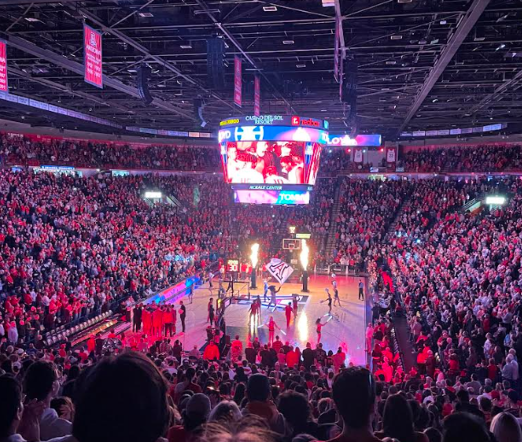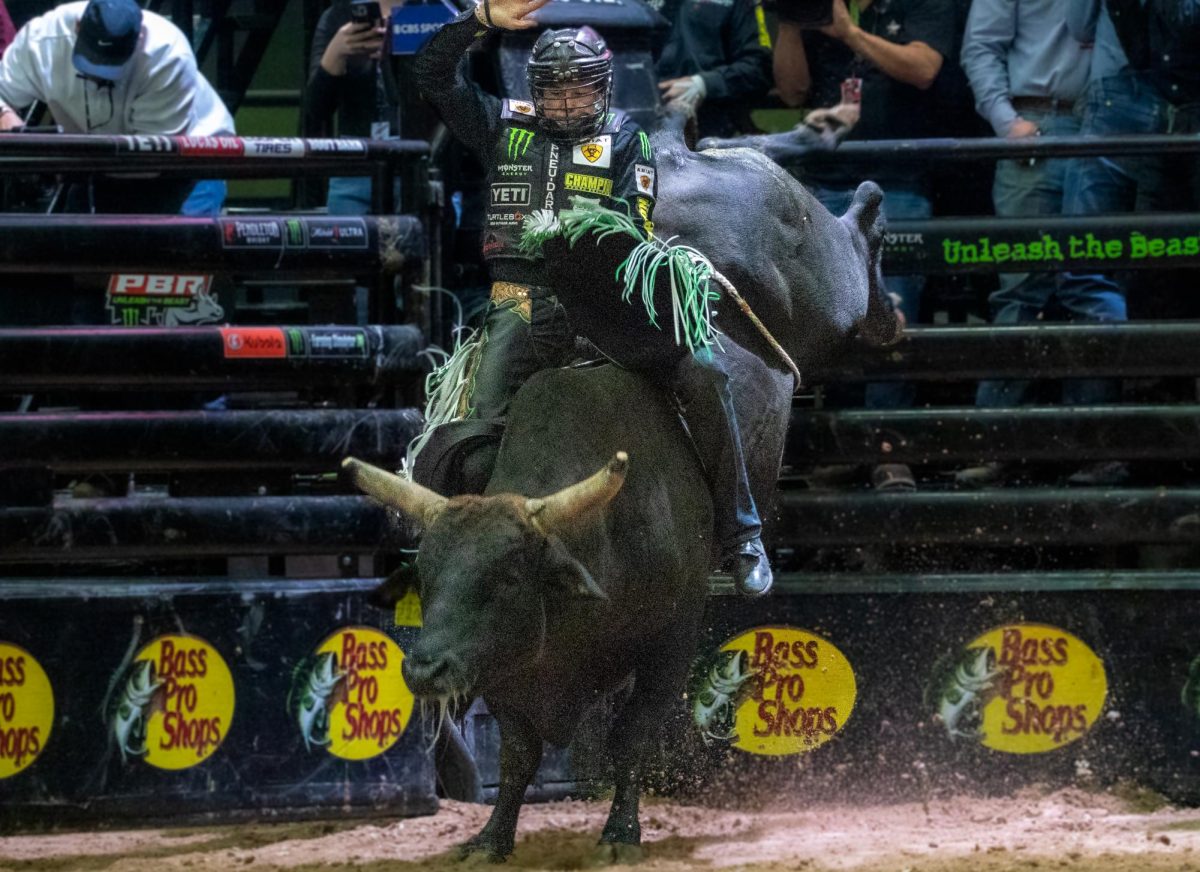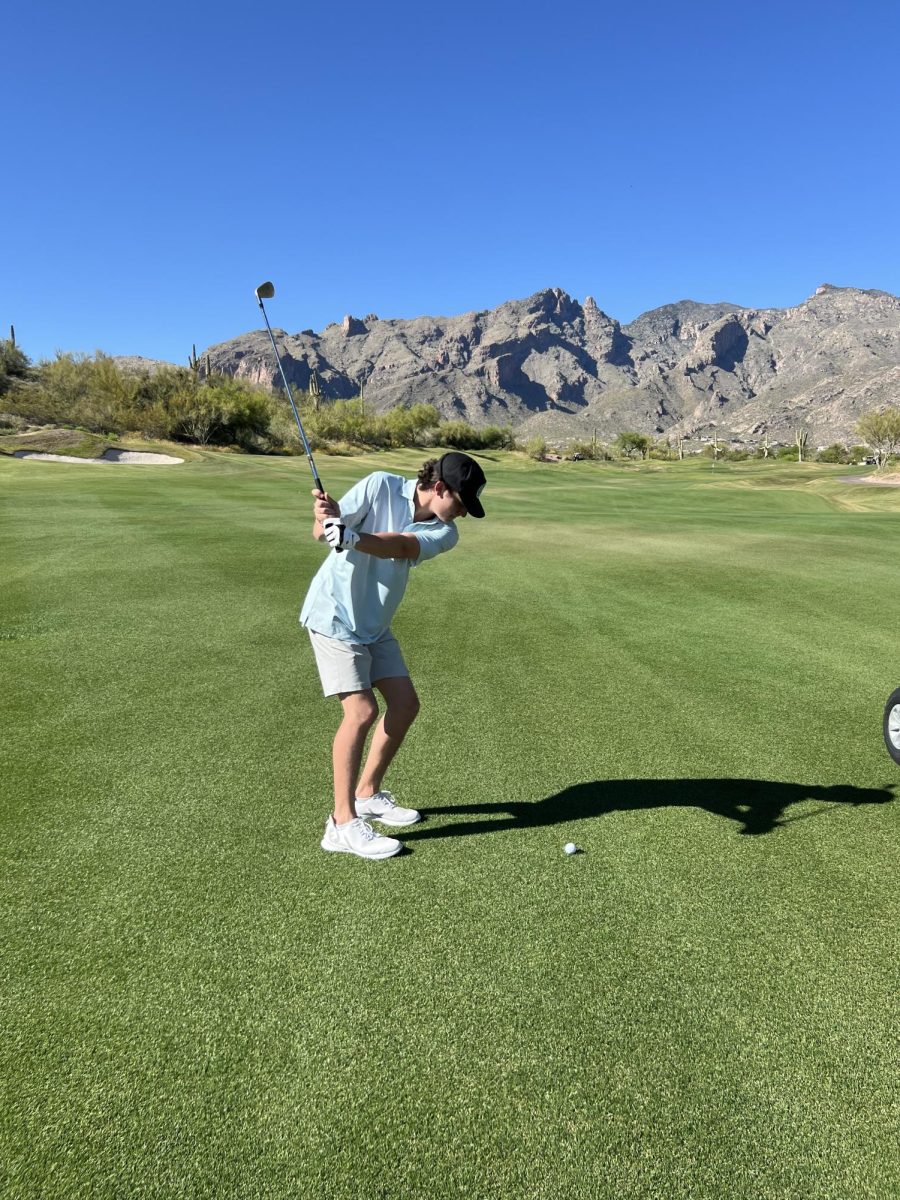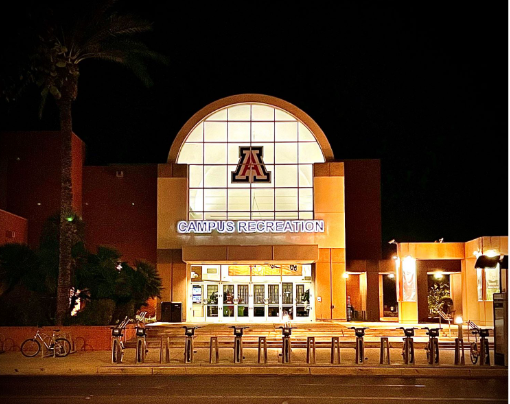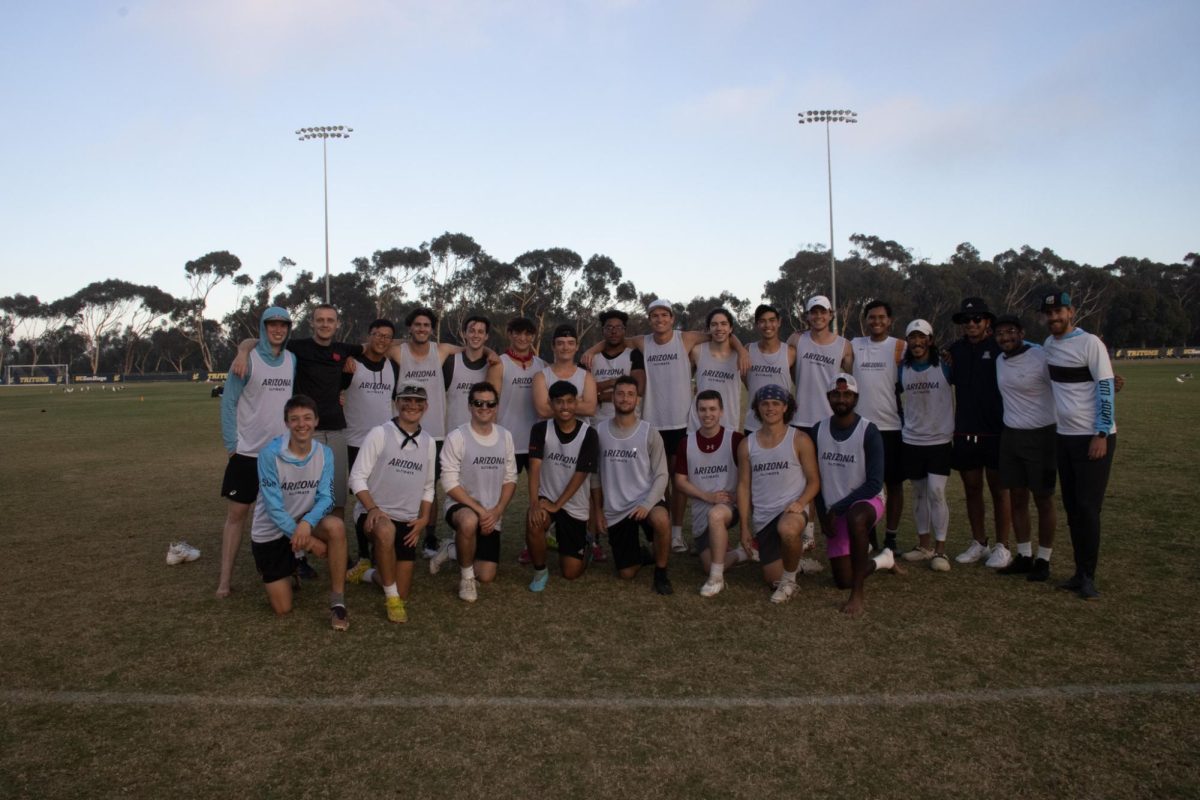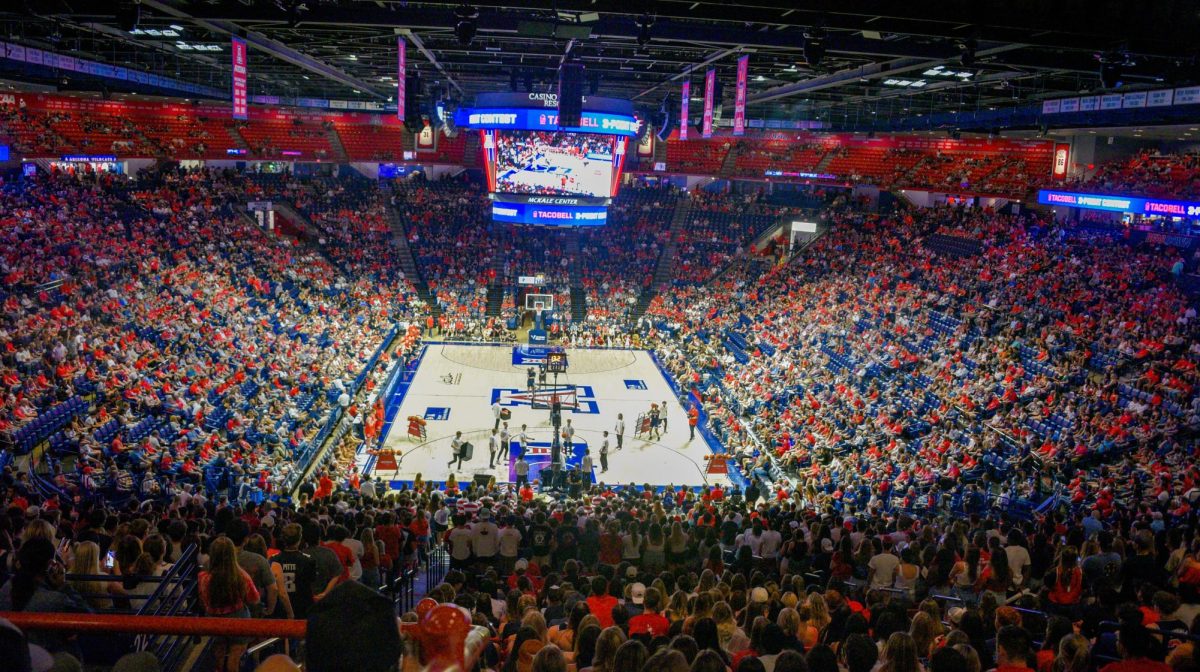
By Mark Lawson/Arizona Sonora News
It’s a Wednesday evening after school, and the echo of basketballs bouncing across the two courts that make up the LEAD Athletics facility near Tucson International Airport can be heard long before you make your way into the gym. The same hardwood floors that Arizona Wildcat legends such as Mike Bibby, Jason Terry and Steve Kerr used to break a sweat on, is now played on by a different generation of kids who could only hope to obtain the same level of success as the greats before them.
Amongst the group of 50 or so people—from those who have barely started playing basketball, to teenagers getting ready to go back to school—sits the maestro, Jamaal Rhodes. Although many of the players he trains are taller than his 5-foot-4 frame, they aren’t able to match his intensity, as he yells out drills and feedback.
Before basketballs are rolled out or jerseys are put on, he tells them to leave whatever problems they have outside the gym: it is time to work.
“Is that how you’re going to play during a game?” Rhodes says to one player, five minutes into a layup drill. “Why are you going half-ass?”
The players all respect him. He has trained former NBA, Division I and overseas players. He played four years of college basketball. After his playing days ended, he channeled his training and coaching skills into helping others get to where he once was.
——
Rhodes grew up in Warrenton, Georgia. When he was 7 years old, his dad enlisted in the military and the family began to move to different places around the world. Being from a part of the South where football dominated the scene, Rhodes grew up envisioning himself playing something else.
“My dad was a basketball coach,” Rhodes says. “So (when I was) about seven or eight, we started moving around … I thought I was Herschel Walker coming up, so I had Herschel Walker kicking tee and all that. But once I moved to Germany, they wouldn’t let me play football because there was a weight limit for your age group, so I started playing basketball a lot more. My dad was the coach of the base team and he ended up coaching the best army team in Europe. We ended up going to France and I started seeing all the things that basketball could do for you, and I just fell in love with it.”
Rhodes saw the sport as a potential gateway out of Georgia and the chance to have his college paid for. He soon moved to Clarksville, Tennessee, where his high school career began. The battles on the court there were some of the best he had, going up against future NBA players such as Trenton Hassell and Shawn Marion, who had standout careers in the league during the late ’90s and early 2000s. After his sophomore season, he moved back to Georgia where he remembers the gym constantly being filled to capacity.
“What you see in the movies is almost realistic … The town shuts down for the rivalry games,” he says. “I went back home a couple of weeks ago and they had an alumni game between my school and our rival school. And it was guys 30, 40 years old. The gym probably had 2,500 people in it for one of those games.”
Although he was smaller than pretty much everyone on the court, he came around in an era when smaller point guards were nothing new to the sport, dominating at the highest levels.
“I ended up at a junior college first,” he says. “ A lot of the schools were afraid because I’m 5-foot-4. But back then, there were small point guards, so it wasn’t unseen for a Division II or NAIA (National Association of Intercollegiate Athletics) or JUCO (junior college) to have a smaller point guard,” says Rhodes. A lot of the schools that were kind of interested wanted me to come try out. I ended up playing junior college basketball at a school called Coastal Georgia Community College, which is now a NAIA four-year school.”
After realizing coastal Georgia wasn’t the right fit on the court, Rhodes moved on to another school. Then another. He went to four different schools after high school, finally finding a home at Augusta State in Georgia. The problem was that once his playing eligibility ran out, his time in the classroom didn’t. Rhodes still had to complete close to two years of coursework to earn a degree.
“Some of the schools I transferred to didn’t accept credits from another school,” Rhodes says. “Then some didn’t offer the same classes. It felt like I started over two or three times, even though I had been in college a lot longer.”
For many players, the drive to go back to school is gone once basketball is over. This put the point guard at a crossroads.
“I took some time off to really get myself together,” he says. “Trying to figure out what I wanted to do, all roads led back to ‘you got to finish school.’”
Rhodes ended up with a marketing degree, becoming a teacher through an alternative program. While he started off in the classroom and not in the court, being around kids as a mentor eventually brought Rhodes back to the sport he loved.
Tucson had never been on his radar. He became the varsity head coach at Warren County, his old high school. Taking the school from 5 wins his first season, to 12 in his second and eventually 19 his third season, he began to open others’ eyes. Candice Warthen was a star point guard for the coach, but wasn’t receiving much interest from schools. Rhodes’ sister was stationed at Davis-Monthan Air Force Base in Tucson, where the University of Arizona was. On a whim, he sent Warthen’s film to the school.
Arizona women’s basketball head coach and Georgia native Niya Butts saw the film and offered Warthen a scholarship. With a spot on staff for someone with playing and coaching background, Rhodes then followed Warthen to Arizona.
The landscape in Tucson is very different from Georgia’s. A 90-degree Tucson day is not the same as a 90-degree day under the sticky Georgia sun.
“Well, the heat was a big thing,” Rhodes says. “I remember when I first got out here, the news people did an experiment where they cooked cookies in the car and melted some strawberry-covered chocolates to show you how hot it was. But everyone outside of Tucson sees Tucson as this basketball mecca. I mean, it is “Point Guard U.” I graduated high school in ’97; I knew what Arizona basketball meant.”
Nineteen-ninety-seven also happened to be the year of the biggest basketball achievement the city had ever seen: the year the University of Arizona men’s basketball team captured their first—and to this day—only National Championship.
“I remember watching those games. I remember watching Miles Simon, Mike Bibby, Damon Stoudamire,” says Rhodes. “I remember those guys being on TV. So me getting an opportunity to come out here to do basketball, it was an amazing opportunity.”
When Rhodes first came to Tucson, he noticed just how different the landscape was from Georgia, where women’s varsity teams would play before the men, often leading to packed gyms with both bleachers down. Tucson splits the pair into home and away games, with games rarely having more than a few hundred people on any night.
“I would go to some of these high school games people told me some talent would be playing in, and there were like 100 people in the crowd,” Rhodes says. “In Georgia, both bleachers would be down, a couple thousand on a really good night. It just kind of took me by surprise at first.”
As he got adjusted to the way basketball worked in Tucson and figured out who were the people to know, Rhodes reached out to Leading Elite Athletic Development, or LEAD, a strictly basketball facility that opened around the time Rhodes came to Tucson.
“Well, once it opened, I think it was a foreign concept here and that’s why it didn’t see the success early on,” Rhodes says. “There weren’t a lot of qualified skilled guys here, so when you say ‘Well, you’re going to go see this trainer,’ the average person is saying ‘Well, my coach can show me how to do certain things.’”
Through LEAD, Rhodes met his current training partner Jeremy Daniels, forging a bond that has stretched beyond just training.
—–
Daniels not only trains alongside Rhodes, but also helps coach at Sabino High School, where the duo has the girls basketball team—among the best teams in the state.
Like Rhodes, Daniels comes from a landscape far from Tucson. Growing up in Virginia, Daniels came up through high school during a time that saw two of the state’s best athletes of all-time playing in former NBA Most Valuable Player Allen Iverson and Ronald Curry, an All-American in high school in both football and basketball.
“I remember Ron 9 (Curry) was a year older than I was, and some of the stuff I saw him do was insane,” Daniels says. “We went to the same high school, and the amount of attention he got was crazy. I haven’t seen anything that has rivaled that out here. You knew the minute he walked into the gym, he was ‘that’ dude. He just had a different swagger to him, something I haven’t seen since I’ve been out here.”
The goal for Daniels and Rhodes goes far beyond winning a state championship or being the best trainers in the city. It’s about instilling confidence in their players as they prepare them to play at the next level.
“A lot of coaches in high school and club basketball coach for wins and trophies,” Daniels says. “We don’t. We’re out there trying to make sure the kids improve each week and get to play at the next level.”
“Of course we want to win, but too many coaches do it for themselves,” Rhodes adds. “Trophies and all that look good on social media, but how many kids are you getting to play college? We want our girls to play against the best competition and learn what they need to get better at. I always tell them that basketball is a tool. Use it to open doors and do things like pay for college, provide a living for your family.”
Most recently, Rhodes has focused on coaching his own daughter Kam’Ren, a sophomore at Sabino.
The point guard started last season as a freshman and is already attracting Division I attention, while having to adjust to having her dad around, on and off the court.
“I’ve gotten used to being able to handle the situation better and separate on the court and off the court,” she says.
During practice, things are all business. Rhodes treats his daughter no different than any other player; he’s a little bit harder on her at times. She is with him at every training session, every practice or open gym. She works during training with the men, often one of only a few girls in the gym.
After the ball stops bouncing, the pair go into father-daughter mode, joking and laughing about what is for dinner or about how she jokingly better score ‘40 points a game this season,’ according to Rhodes.
“At the end of the day, he’s always dad first,” Kam’Ren says. “I know he pushes me to be at my best, but I never feel the added pressure or anything. He wants me to be better than anyone in town. I know I can get there if I work hard enough.”
The trio take turns shooting from half court before they leave the gym, always competing, no matter what it is they’re doing.
Kam’Ren sinks it on her second try, coming out of her typical quiet shell to rub it in to Rhodes and Daniels.
“You both owe me a Bahama Bucks now,” she says, referring to the dessert shop a few miles from the school.
The group is hoping that isn’t the only treat they’ll enjoy this season.


